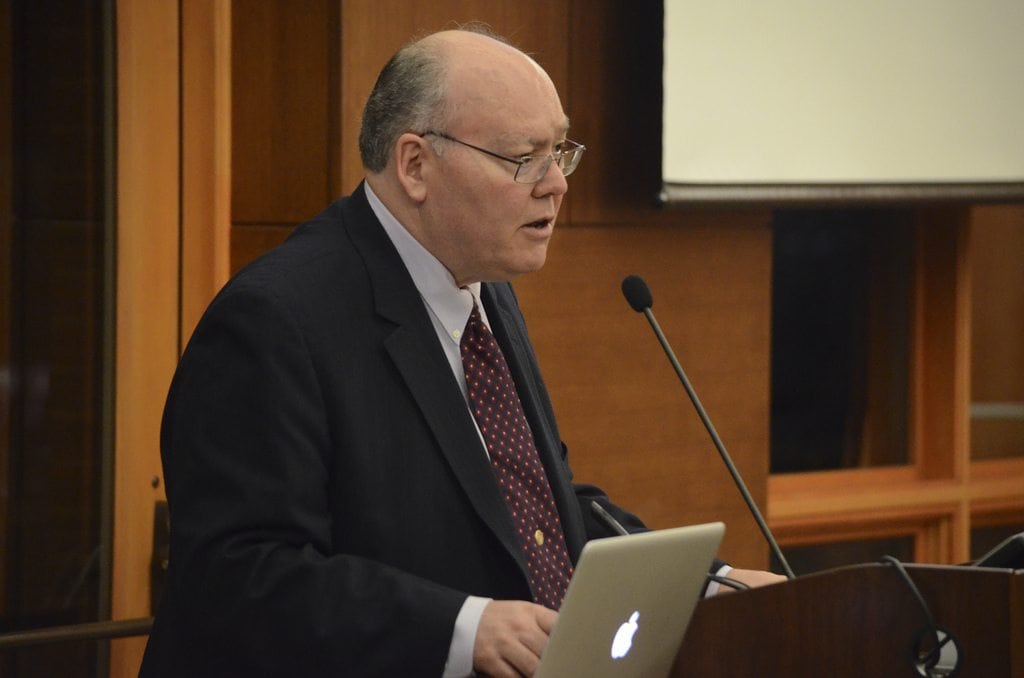Dr. Martin Medhurst: 10 Books
Here are the ten books that have most affected my moral and intellectual outlook. I have not included the Bible in the list, even though it would be the most influential in my life (and presumably in millions of others). In alphabetical order, they are:
1. Aristotle, On Rhetoric (circa 334 BCE)
Aristotle wrote the only systematic treatise on rhetoric in antiquity. One cannot be a professional teacher of rhetoric, which I am, without immersion in this work.2. Dietrich Bonhoeffer, The Cost of Discipleship (1937)
It is in this book that Bonhoeffer introduces the notion of "cheap grace" and outlines his vision of sacrificial and costly Christianity. It ultimately cost him his life at the hands of Hitler's henchmen.3. Kenneth Burke, The Philosophy of Literary Form (1941)
This is Burke's most complete statement of his approach to literary and rhetorical criticism. As a practicing rhetorical critic, I have turned to its insights throughout my career.4. Northrop Frye, The Great Code: The Bible and Literature (1982)
Most people would probably list Frye's Anatomy of Criticism as a favorite, but I like The Great Code because of its in-depth discussion of myth and metaphor. It is useful not only for criticism of the Bible, but for any text that deploys myth or metaphor.5. Russell Kirk, The Conservative Mind (1953)
As a political conservative, I find Kirk's book to be the best synopsis of what it means to be a conservative in America. Anyone who has read this book will immediately understand why Donald Trump is not a conservative.6. C. S. Lewis, God in the Dock (1970)
This is a book of essays written by Lewis over 22 years, 1941-1963. Some of my favorite pieces are "Dogma and the Universe," "Myth Became Fact," "God in the Dock," and "On the Reading of Old Books"--which may explain why most of my choices for this list are not recent works.7. Reinhold Niebuhr, The Irony of American History (1952)
As a scholar who often writes about American foreign policy, I find Niebuhr's insights quite powerful. His emphasis on irony and paradox parallels my own beliefs, which have been greatly affected by his writings.8. Herbert Schlossberg, Idols for Destruction (1983)
I read this book shortly after it came out and it changed my life. Schlossberg discusses idols of history, humanity, mammon, nature, power, and religion, subjecting each to a Christian critique.9. Helmut Thielicke, The Freedom of the Christian Man (1963)
Thielicke discusses the true meaning of freedom and how it is radically different from conceptions popular in the secular world. We find our true freedom by being bound to Christ.10. Richard M. Weaver, Ideas Have Consequences (1948)
It was a hard choice between Ideas Have Consequences and Weaver's The Ethics of Rhetoric. But Ideas Have Consequences sets forth all of Weaver's system for understanding the relationships among meaning, significance, and action. His concept of the "metaphysical dream" sets his work apart from all other 20th century rhetorical theorists. Martin J. Medhurst Distinguished Professor of Rhetoric and Communication Professor of Political Science Baylor University Waco, TexasStudents interested in Communication will be interested in our articles: 17 Best Communication Management Programs, and our 20 Best Online Degrees for Careers, which discuss online Communication degrees.
